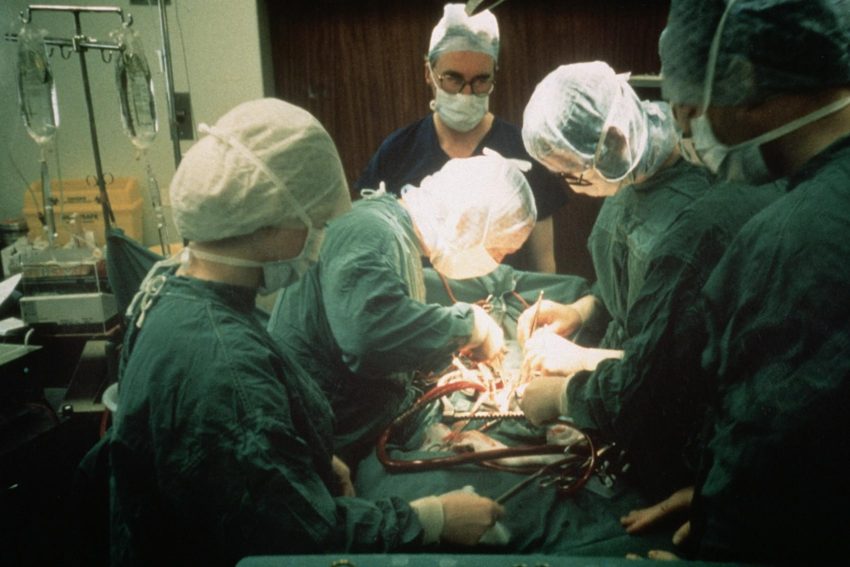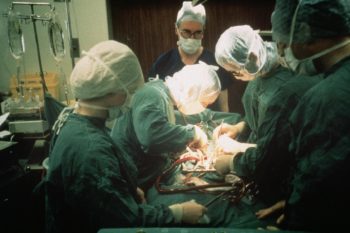
After a month of lockdown, the UK has the second highest death rate from Coronavirus (COVID-19) in the world, relative to population. The reported 16,000 deaths is widely believed to be an underestimation, and the crisis is far from over.
There has been significant news coverage of the threats that the virus holds for vulnerable people, including those with pre-existing health conditions – and not just from the virus but also its social costs: hunger, lack of medical care for other conditions, loneliness and mental health problems, domestic violence. Elderly and isolated people have received the most media attention, with rather less focus on people with disabilities. Even less attention has been paid to organ donors and recipients, though organ donation and transplantation of all kinds is, like many other aspects of healthcare, affected globally by the COVID-19 crisis.
Coronavirus brings increased health risks for immunocompromised people, which covers a wide range of health conditions, from heart and lung disease to lupus, cancer and even malnutrition. This term also applies to people taking immunosuppressants, a key medication in ensuring the success of an organ transplant. A weakened immune system, however, increases the body’s susceptibility to COVID-19. Transplant patients are particularly at risk due to immunosuppression, underlying chronic disease caused by immunosuppressants and other comorbidities, as suggested by a study of kidney-transplant recipients who contracted the virus.
Around the world, medical clinics are developing transplantation strategies and measuring the risks of COVID-19, as seen in a recent letter to the American Society of Transplantation from clinicians in Milan. The risks of different kinds of organ transplant, and the potential susceptibility of the lungs in particular, has been explored by researchers at Brigham and Women’s Hospital in Boston (one of the clinical partners of AboutFace), in developing a response that builds on previous outbreaks of SARS and H5N1. Yet much about the impact of Coronavirus on transplant recipients is unknown – as evidenced by a study of heart transplant recipients in China. Large-scale epidemiological investigation will be needed.

Heart transplant surgery. Credit: Wellcome Collection. Attribution 4.0 International (CC BY 4.0)
In addition to the specific medical risks involved in transplantation for patients, there is a question of hospital resources. Clinics in the UK, USA and Canada report a delay in organ donation, as hospitals have their resources diverted to deal with Coronavirus. The virus is impacting the capacity for a diverse range of clinical treatments from cancer to transplantation, and the long-term implications of delays is yet to be seen. Transplant recipients spend at least part of their recovery in intensive care units which are currently being prioritised for Coronavirus patients. Although NHS Blood and Transplant notes that transplants are going ahead in the UK when ‘it is safe and appropriate’, the number of transplant operations in the UK has fallen sharply since the middle of March 2020 and some transplant units have been forced to close.
This combined effect of these factors is intolerable stress on those awaiting life-saving transplants. Each year in the UK around 450 patients die while on the waiting list for an organ. There is no known transmission of Coronavirus through organ donation, but screening programmes ensure that those testing positive do not donate organs. For recipients who have been waiting months and years for transplants, this wait can be unbearable and deadly. The UK tabloid The Daily Mail reported recently on the death of a 21-year-old woman who had been taken off the transplant list because she tested positive for Coronavirus.
For medical practitioners, too, these are hazardous times – the first working NHS surgeon to die from Coronavirus was Dr Adil Ed Tayar, an organ transplant consultant working at St Mary’s and St George’s hospitals in London. And exacerbated by the scandal of limited Personal Protection Equipment (PPE), the number of NHS workers to die is rising. Risks are escalating, and not only in terms of individual health. Organ transplant teams need to negotiate the likelihood of cross-infection, of contact with undiagnosed patients, of asymptomatic donors and recipients as well as shortages in blood, organs and support networks.
It is not possible to predict when organ donation rates might be resumed, or what the long-term impact might be on those waiting for organs. And we hear even less about those who have received experimental transplants – including face and hand transplants – and are, like many others, living in self-isolation and waiting for the virus cycle to pass. But the rapid spread and wide-ranging impacts of the virus show how easily emotional, psychological and physical risks can be amplified and transformed in the complex world of transplantation.
